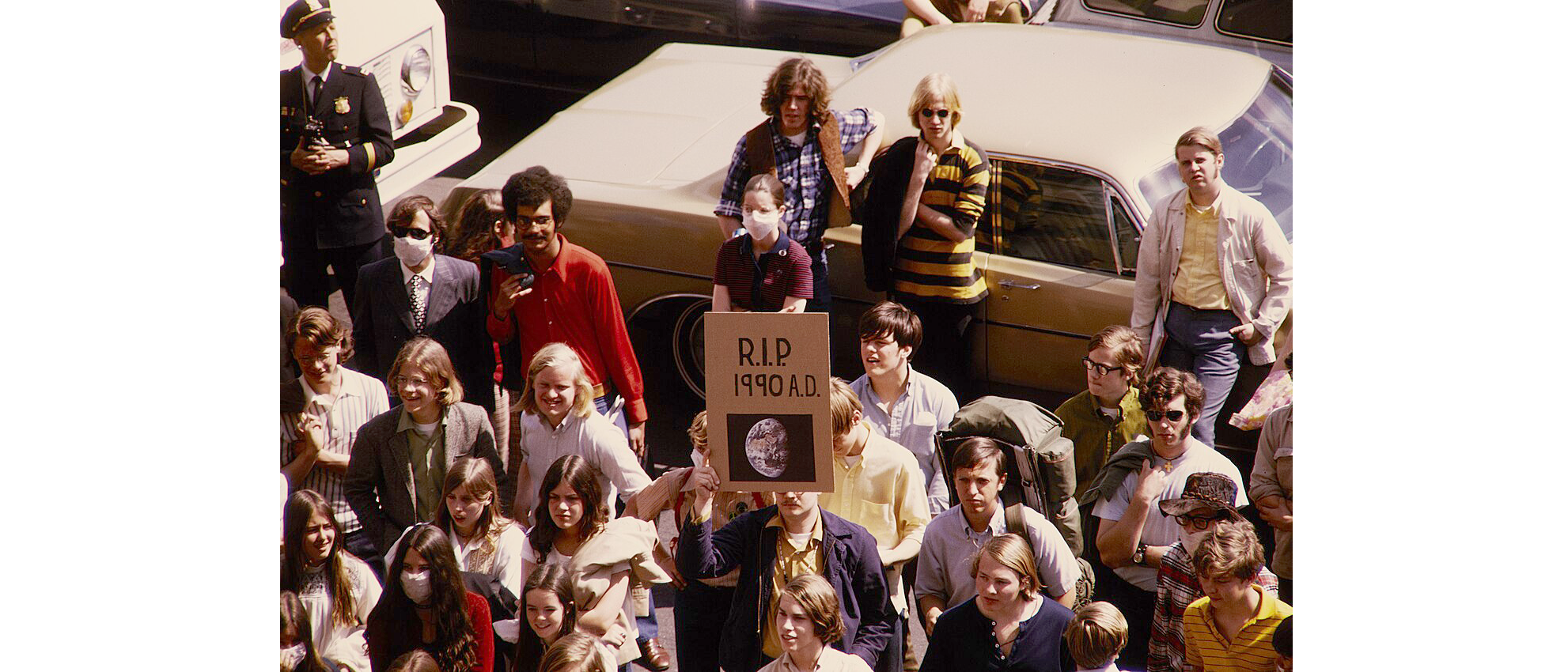On EARTH DAY, Look for Climate Fiction

It is April 22, 2024—Earth Day. Fifty-four years ago, in 1970, the first Earth Day called attention to polluted skies, polluted waters, and the devastating effects of pesticides. Progress has been made since then. At least we don’t have rivers catching fire anymore, American skies are not thick with smog, DDT is banned for the most part, and no one worries about acid rain or the ozone hole. Our situation is still dire, though, because of climate change. If left unchecked, climate breakdown could unravel our whole way of life, which is why we desperately need climate fiction to spark action.

Even though the climate crisis is critical, some people don’t feel the urgency, or they deny climate change altogether. Misinformation spread by the fossil fuel industry creates doubt because scientific data can be hard to grasp. Like many, I can’t visualize the 37.15 billion tons of CO2 the world emitted in 2022. It’s hard to know what 3 meters of sea level rise might destroy, or what an extra 1ºC global temperature increase would feel like. We need data to understand the severity of the problem and how to solve it, but facts don’t resonate well for the general population. Most of us need a story.
Humans are creatures of story. It’s been part of our brain landscape since primitive times when stories were a major way of passing knowledge down through generations. Stories capture our imagination. They change the world by changing us. In her book Story Genius, How to Use Brain Science to Go Beyond Outlining and Write a Riveting Novel, Lisa Cron explains:
“When we’re under the spell of a compelling story, we undergo internal changes along with the protagonist, and her insights become part of the way we, too, see the world. Stories instill meaning directly into our belief system, the same way experience does—not by telling us what is right, but by allowing us to feel it ourselves.”

We urgently need compelling climate fiction to inspire action because we’re running out of time. We need stories about fighting for better outcomes, ones that let us dream of success. Yet where do you find those good stories? At the moment, it’s difficult.
For one thing, climate fiction seems to be stuck in a gloomy dystopian rut. Plenty of novels are set in a dismal climate future after it all falls apart, but those aren’t the stories that help. They can make people depressed and apathetic, according to Professor Denise Baden whose research showed that negative climate stories discouraged readers from taking action. Apocalyptic stories showcase failure in our climate change battle. They begin with the premise of defeat, yet that’s what’s being published. Why? Part of the blame comes down to book categories.

Subject categories help connect readers to the books they’re interested in, and systems exist to classify books, whether fiction or nonfiction, by topics ranging from antiques to travel to romance to humor. There are thousands of headings in these lists. The Library of Congress has a LCSH subject heading system. Bookstores and wholesalers use the BISAC subject headings. Online retailers offer a mishmash of categories that may or may not include these standardized headings. When it comes to climate fiction, though, a relevant subject heading simply doesn’t exist.

Dystopia does have a category in several online stores, and this dystopian heading defines an audience to target as well as which shelf the book will sit on in a bookstore. Since publishers look for the niche a manuscript fits, that’s more likely the type of climate fiction publishers will acquire. However, if a dedicated climate fiction subject heading existed, a different type of climate story—uplifting and energizing—might thrive, competing with dystopian novels for shelf space.
So, if you’re looking for an inspiring climate fiction to relax on the couch with, good luck. You can easily find a grim dystopia to bring down your mood, but if you want something to make you jump off that couch and take action, something to give you hope that all is not lost, then you will need perseverance to track it down. Writers are not writing those stories because publishers are not publishing them because the book industry is not making them easy to sell.
It's time to give the industry a little push. This Earth Day, please go looking for hope-filled climate fiction.
Ask booksellers and librarians where to find climate novels that instill some optimism the climate battle can be won and perhaps even show the way. If they have none on the shelf, ask why those books aren’t there. Suggest to them a new subject category called climate fiction. And when you find a great climate novel that might trigger a cascade of change, spread the word.



Member discussion